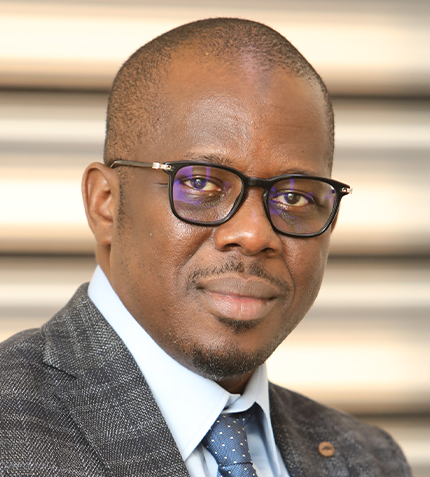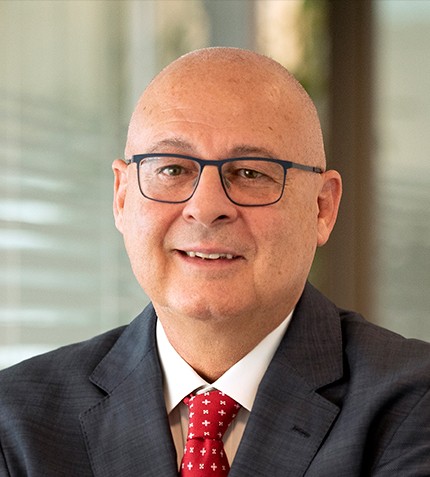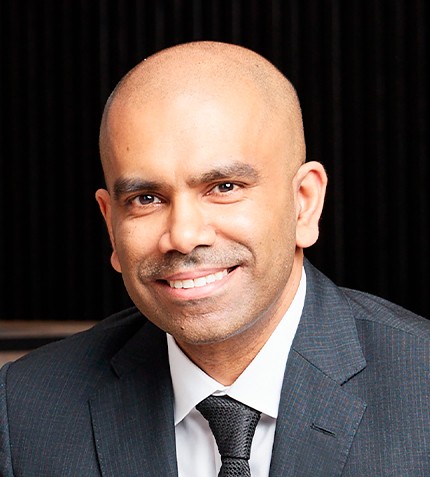
"Despite recent security challenges, Burkina Faso has a strong track record of opening an average of 1.2 new mines annually since 2010. We expect this trend to continue."
Adama Soro
PRESIDENT, CHAMBER OF MINES BURKINA FASO
What is your vision for the Chamber of Mines after your reappointment as President in July 2023?
During the first term, our primary objective was to reposition the chamber as a key player in driving social and economic development in the country through the mining industry. We also aimed to strengthen our role as a crucial intermediary between the government and other stakeholders in the mining sector. For this term, we are committed to enhancing the subregional positioning of Burkina Faso as an attractive investment destination for mining. While we are, of course, focused on the interests of our country, we also understand the importance of regional collaboration and ensuring that Burkina Faso remains an appealing choice for investors in the broader region. Finally, we are dedicated to addressing the issue of wealth distribution to drive sustainable development for the local communities and a peaceful and proactive environment for mining operations.
How have recent political and security challenges impacted the mining industry in Burkina Faso?
The political and security challenges we have encountered have been significant. Over the past two years we experienced three presidents, three prime ministers, and three mining ministers. These frequent changes have sometimes jeopardized previous progress and led to alterations in the regulatory framework. This has impacted the revenue generated by the mining sector. Additionally, we have had to contend with security issues that have forced some mining companies to halt or close their operations. This was deeply concerning as it affected not only the overall performance of the extractive industry but also above all, impacted livelihoods with thousands of workers losing their jobs and leaving their families in dire conditions. We have worked tirelessly to secure government support in resuming these operations and have made progress, but challenges remain and we are dedicated to working towards a more secure and productive environment for mining operations.
What is the economic impact of the mining sector on Burkina Faso's GDP?
The mining sector plays a crucial role in Burkina Faso's economy. It accounts for approximately 20% of the country's GDP, making it a significant driver of economic growth. While we have around 10 to 12 operating mines, they collectively contribute a fifth of the GDP, which highlights the sector's importance. In terms of employment, the mining industry directly employs about 15,000 people and indirectly supports another 35,000 jobs. These jobs are not only numerous but also considerably well-paid. The mining industry income tax accounts for four times the tax income tax generated from civil servant wages in Burkina Faso. Furthermore, mining companies have injected approximately US1 billion into the local economy through procurement, making a substantial economic impact. This is poised to increase over the next years if the political and security context regains a certain level of stability.
What are the anticipated trends for the mining industry in Burkina Faso in 2024?
We anticipate positive trends. Despite recent security challenges, Burkina Faso has a strong track record of opening an average of 1.2 new mines annually since 2010. We expect this trend to continue, with new mines coming into operation. Although we experienced a modest dip in gold production in 2022 (66 t in 2021, but declining to 57 t in 2022), we maintain a positive outlook, anticipating production stability and potential growth in the upcoming years. This growth will be driven not only by new mines like Orezone’s Bomboré mine but also by the expansion of existing operations.
How does the country strike a balance between empowering local businesses and ensuring the competitiveness of mining operations?
Implementing local content policies has been a priority since 2021, but it comes with challenges. We have been in discussions with the Ministry of Mines to find common ground and facilitate the integration of local businesses into the mining supply chain. Our goal is to empower local businesses while ensuring that mining operations remain efficient and profitable.
How do you see the role of the Chamber of Mines in Burkina Faso evolving in the coming years?
We are committed to facilitating open and constructive dialogue among all stakeholders. In 2024 and beyond, our objectives include finding solutions to the security challenges and ensuring the sustainability of the mining industry. Despite recent challenges, we encourage foreign mining firms to recognize the potential of our country, where the mining industry has a strong foothold.











